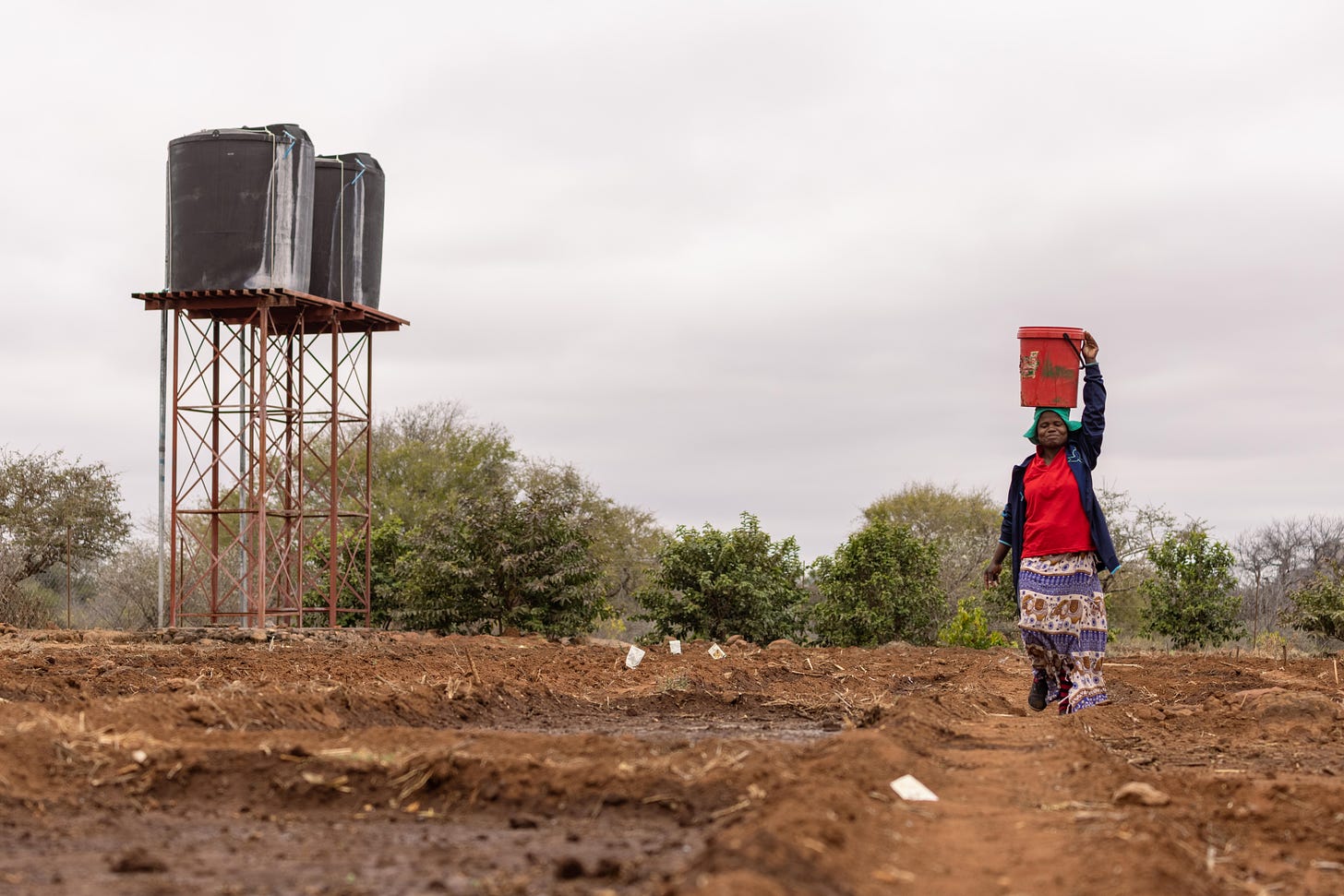“Unless groundwater governance practices are vigorously transformed, groundwater’s potential remains subdued”
It is estimated that about 70% of the SADC population depends on groundwater for their everyday use.
“There is an urgent need to intensify comprehensive groundwater governance to address the current challenges, achieve the future significance of groundwater and to make use of opportunities for protecting and augmenting groundwater resources”, says Eng. James Sauramba, SADC-GMI Executive Director.
Water security in the Southern African Development Community (SADC) region has been subjected to the impacts of climate change and severe weather events. These have impacted negatively on the livelihoods of a significant proportion of the region’s population which relies on groundwater for their daily activities.
It is estimated that about 70% of the SADC population depends on groundwater for their everyday use, and groundwater has the potential to support further socio-economic growth on the continent.
Today groundwater is estimated globally to provide 36% of potable water, 42% of water for irrigated agriculture and 24% of direct industrial water supply. This dependence to groundwater calls for robust policy frameworks and institutional arrangements at local, national, and regional levels.
Considering the pivotal role played by groundwater in the region, it is disheartening to learn that groundwater resources are still often poorly understood and managed. In some areas, particularly urban areas, and intensively cultivated areas, groundwater is often overexploited or contaminated. It is important that policies and institutional frameworks at all levels are revisited if we want to tap into the benefits potentially presented by groundwater resources, which include but not limited to - irrigated agriculture, contribution to employment and economic growth, increased water supply during extended droughts and protection of groundwater dependant eco-systems.
Groundwater is a fundamental resource for social, economic, and environmental sustainability across the 16 Member States of the Southern African Development Community (SADC). As climate change intensifies and surface water levels continue to dwindle, human well-being, livelihoods, food security, ecosystems, natural habitats, industries, and growing cities turn to groundwater for their primary source of water.
Through improved policies and practices, groundwater could be a catalyst for sustainable and equitable socio-economic development and food security for resilient livelihoods in the SADC region and the African continent. However, unless a concerted effort to vigorously transform groundwater governance practices is made, its potential remains subdued.
While some SADC Member States have recorded great strides in integrating groundwater into their water resources management policies and institutional frameworks, according to the UNESCO Groundwater Governance Report, legal instruments for groundwater governance are still in their infancy.
Notably, groundwater is not prominently featured in water legislation or policies in Southern Africa. The resource is often excluded in water planning, and there is a general shortage of skills to monitor compliance with standards and abstraction.
According to the UNESCO Groundwater Governance: A Call for Action, the world’s groundwater resources are falling victim to a lack of effective governance.
Information systems to measure and manage groundwater are different from country to country, while institutions to manage groundwater have limited capacity and they suffer from scarce financial and human resources. Through Sustainable Groundwater Management in SADC Member States Project Phase 1 (2015-2021), SADC- Groundwater Management Institute (SADC-GMI) implemented robust interventions aimed at promoting sustainable groundwater development in the region. One such initiative was the implementation of the Policy, Legal and Institutional Development for Groundwater Management in SADC Member States project.
The project focused on identifying gaps that existed in policy, legal and institutional frameworks and devised mitigating actions/strategies to address inconsistencies that were found. Culminating from the project the SADC Regional Gap Analysis Report and 16 National Gap Analyses Reports were produced.
These reports are now serving as guiding documents for the Member States in addressing identified gaps.
The USAID Resilient Waters Program is currently supporting SADC-GMI in converting the gap analyses for the four countries of the Limpopo River basin (Botswana, Mozambique, South Africa, and Zimbabwe) into National Road Maps for each of the countries to implement.
This activity forms part of the implementation of the work of the Limpopo Groundwater Committee, a structure that was set up and operationalized with support from the USAID Resilient Waters Program.
Eng. Sauramba believes that informed management of groundwater resources through an improved knowledge base and human and institutional capacity, as well as enhanced governance through the implementation of effective policy and legal instruments, are needed to unlock the sustainable development of groundwater in Africa for the benefit of socio-economic development, water and food security, and climate change resilience.
However, the lack of scientific and technical knowledge on transboundary or national aquifers is one of the major challenges to proper governance.
He concludes that if well managed, groundwater could ensure long-term water supply to meet the increasing demands brought about by the anticipated climate variability.
SADC-GMI activities towards the Sustainable groundwater management in the SADC region are funded by the Multi Donor Trust Fund Cooperation in International Waters in Africa (CIWA), Global Environment Facility (GEF) through the World Bank and USAID, and implemented under the strategic guidance of the Water Division in the SADC Secretariat's Infrastructure Directorate, in Gaborone, Botswana.
Compiled by: Thokozani Dlamini SADC-GMI Communications and Knowledge Management Specialist



